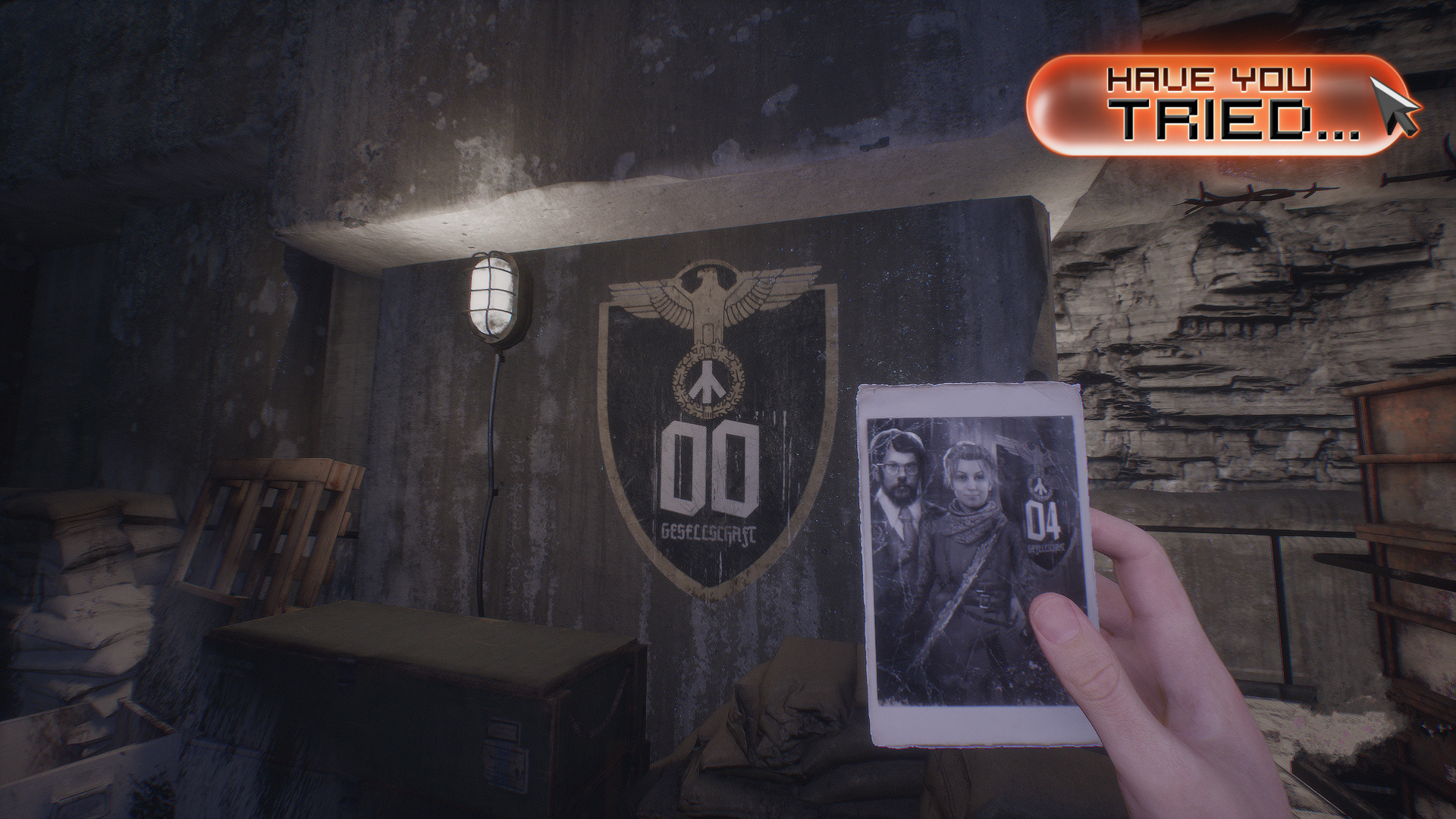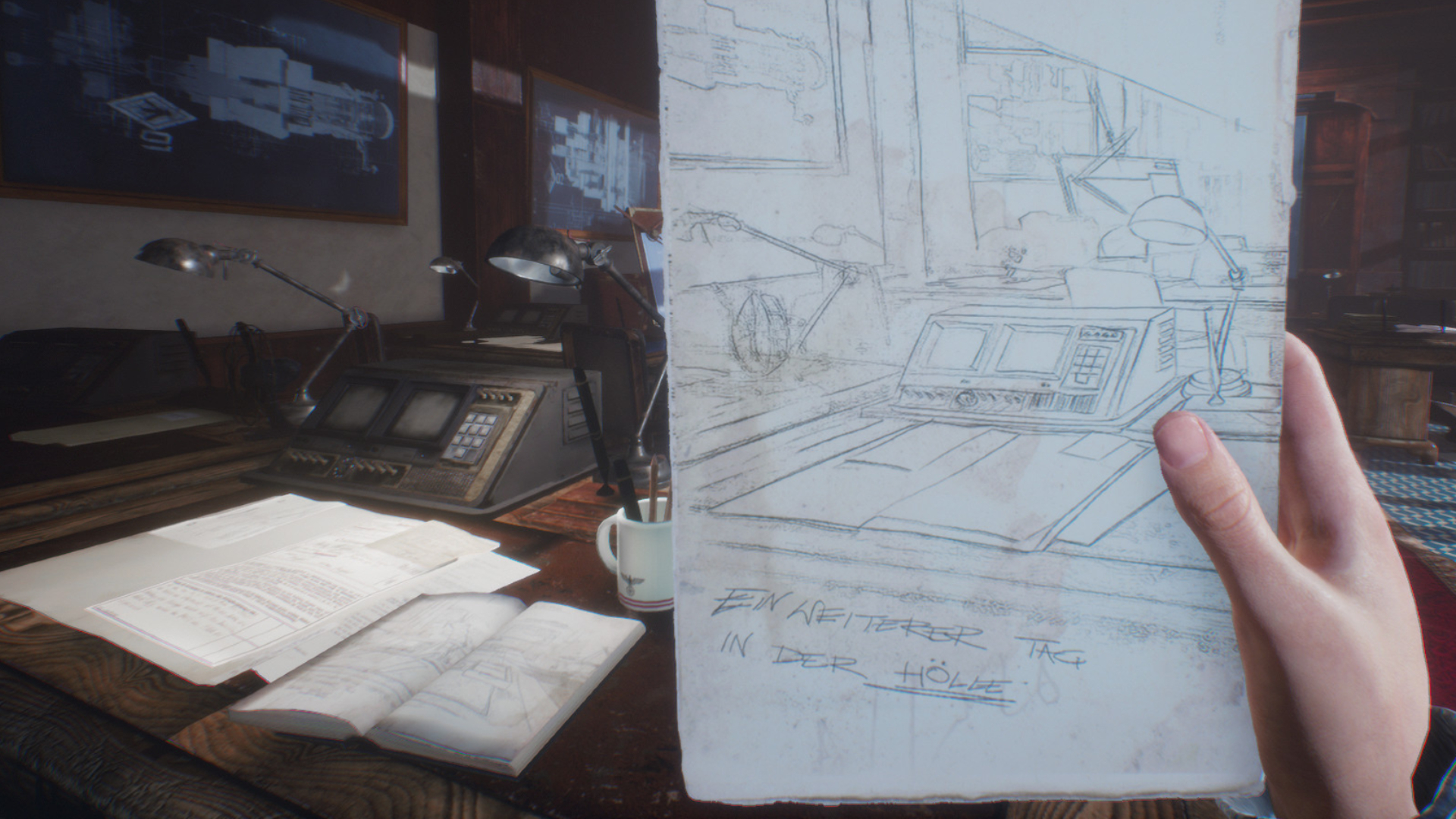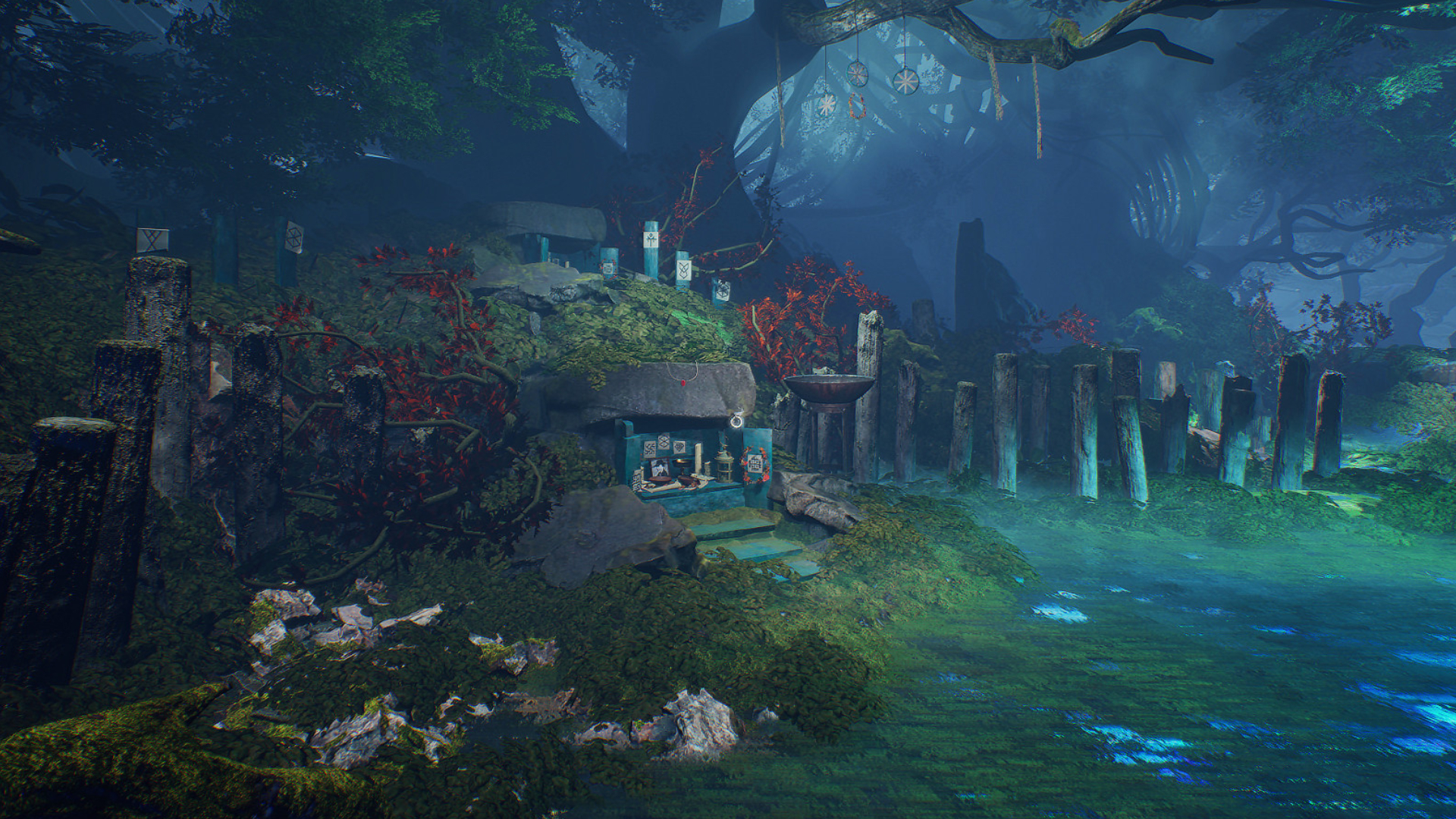
"No matter how dark the night, the new day's sun will always rise," Szymon's mother says in an early flashback. This stayed with me throughout Paradise Lost. Framed around the five stages of grief, this is a quiet story of exploration, and acceptance - all shrouded in mystery. A mystery that you, as 12-year-old Szymon, must embrace and push through.
Set in an alternate history where World War 2 carried on for 20 more years, where the Nazis planned to simultaneously start nuclear armageddon but safely retreat into a series of secret bunkers and tunnels, Paradise Lost does have some familiar themes. But, uncovering the secrets of an abandoned Nazi bunker is an itch that Paradise Lost scratches. Szymon is drawn here to look for a man photographed with his late mother, but the resulting tale is more than a simple missing-person mystery or exploration of a place's secrets.
The bunker's sense of place constantly appealed to my inner curiosity and inner detective: but wondering how it was built and why it existed was just the beginning. To give a sense of why, the game reveals that certain people were selected to live in the bunker and that there specific requirements and then limitations on what and who these people could bring. In an abandoned train car you can see that a famous singer was allowed to bring many luxuries, while regular folks were limited to one suitcase; and vast empty ticket halls still feel heavy with the shadows of queues of people, proving ethnicity and heritage in order to be admitted. What was intended as a paradise, however, does not come to fruition, when Polish resistance breaks in before the bombs go off.
A mystery within a mystery

When Szymon arrives, however, the bunker has long been empty of people - but a strong atmosphere is still tangible. I constantly found myself trying to read Nazi directives pinned to walls to translate them, and was poring over every letter and photo that I found; these help to bring the place to life. Though Paradise Lost also often lets you fill in the gaps with your imagination. However, you will interact with Memory Tubes, a console that allows you to seemingly enact or dictate how past events played out, and also have to find parts to solve occasional environmental puzzles that help to mix it up and provide momentum.
The framing of the game in the five stages of grief - denial, anger, bargaining, depression, and acceptance - shapes each level. However, these are for Szymon and you and it does feel like the interpretation and effectiveness, and impact, of each, is also left to you. It encourages you to share in Szymon's feelings, rather than be dictated them, despite some nods to these through the environment's aesthetic and readables strewn about.
Somewhere else in the bunker's environment is Ewa, a companion you gain through the bunker's intercom system. She treads the boundary between AI and human carefully but ends up being deeply human, and a provider of a crucial link between Szymon and the bunker. At times, she seems to know quite a lot - almost too much - and my eyebrows were raised, but at others, she is genuinely human and a friend for Szymon. Ewa's introduction changes the course of the game permanently and Szymon's journey quickly becomes one to find and talk to her.
But despite this connection and contact, you do acutely feel Szymon's loneliness in the bunker, particularly in the bleaker, more-oppressive sections. The scale of the place works constantly against you and exaggerates a sense of insignificance and isolation that's tangible.
Weekly digests, tales from the communities you love, and more
Light at the end of the tunnel

Working toward Ewa, and hearing from her occasionally also helps to highlights and raise some hope for Szymon; the burden of loneliness could soon be shared. However, the revelation of this connection with Ewa slowly but surely reveals a deeper connection Szymon has to the bunker and some of its former inhabitants, too… This culminates in a conclusion where your choice is quite emotional and powerful. The conclusion is as eye-opening as the journey - and is a moment of brightness and light to finish the grief-infused journey.
Paradise Lost is at its strongest in its simplicity, and when it lets you and your thoughts fill in the gaps: the deliberate and steady pace of the journey allows you to soak everything in and allows your own imagination to theorise and hypothesise what happened, and where it might lead Szymon - physically and emotionally. It is a slow but deliberate journey, and the pace feels right given what you see and explore. It enhances the place's thought-provoking atmosphere, and there's plenty of weirdness, wonder, and riddles to ponder in its few hours.
At the end of the game I remember the phrase uttered by Szymon's mother again: 'No matter how dark the night, the new day's sun will always rise'. Even at the end of a long road of grief, light can be found. And in Szymon's ending - in whatever form it takes - this is clear, and it helps leave an indelible mark.
Paradise Lost is available now on PS4 and PS5, Xbox, Nintendo Switch, and PC.
Rob is the Deputy Editor of sister site, TechRadar Gaming, and has been in the games and tech industry for years. Prior to a recent stint as Gaming Editor at WePC, Rob was the Commissioning Editor for Hardware at GamesRadar+, and was on the hardware team for more than four years, since its inception in late 2018. He is also a writer on games and has had work published over the last six years or so at the likes of Eurogamer, RPS, PCGN, and more. He is also a qualified landscape and garden designer, so does that in his spare time, while he is also an expert on the virtual landscapes and environments of games and loves to write about them too, including in an upcoming book on the topic!



